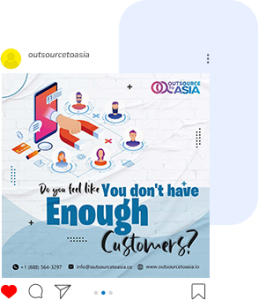The Power of SEO Service Provider

Introduction:
In the digital age, having a strong SEO Service Provider essential for businesses to thrive. Search Engine Optimization (SEO) service have emerged as a critical tool for improving website visibility, attracting organic traffic, and driving conversions. In this article, we will explore the importance of SEO Service Provider and delve into various subtopics to understand their significance in optimizing websites for search engines.
The Fundamentals of SEO Service Provider
- Understanding SEO: A Brief Overview
- The Role of Keywords in SEO
- On-Page Optimization: Maximizing Website Performance
- Technical SEO: Ensuring Website Accessibility and Crawling
Comprehensive SEO Audits and Analysis
- Conducting Keyword Research and Analysis
- Analyzing Competitors for Strategic Advantage
- Website Performance Evaluation and Recommendations
III. On-Page SEO Optimization
- Crafting Engaging and SEO-friendly Content
- Optimizing Title Tags, Meta Descriptions, and Headers
- Enhancing Website Navigation and User Experience
- URL Structure Optimization for Search Engines and Users
Off-Page SEO Strategies
- Building High-Quality Backlinks for Authority
- Leveraging Social Media for Brand Visibility and Engagement
- Online Reputation Management and Review Strategies
Local SEO Service Provider
- Optimizing for Local Search: The Power of Local Listings
- Google My Business Optimization and Local Citations
- Targeting Local Keywords and Geo-Targeted Content
Mobile SEO Service Provider
- The Rise of Mobile Search and Its Impact
- Responsive Design and Mobile-Friendly Websites
- Mobile Page Speed Optimization for Enhanced User Experience
VII. Measuring Success: SEO Analytics and Reporting
- Setting Up Website Analytics and Tracking Tools
- Monitoring Keyword Rankings and Organic Traffic
- Analyzing User Behavior and Conversion Tracking
Conclusion:
In today’s competitive online landscape, SEO service Provider have become indispensable for businesses aiming to establish a strong digital presence. From on-page optimizations and comprehensive audits to off-page strategies and local/mobile SEO, every aspect plays a crucial role in improving search engine rankings and attracting targeted organic traffic. By leveraging the premium SEO service Provider, businesses can unlock new opportunities, increase brand visibility, and achieve long-term online success.
The Fundamentals of SEO Services
Search Engine Optimization (SEO) services form the foundation of any successful online marketing strategy. By optimizing your website’s visibility and relevance, SEO services help improve your search engine rankings, attract organic traffic, and drive conversions. Let’s delve into the fundamental aspects of SEO services:

Understanding SEO: A Brief Overview
Definition of SEO:
SEO encompasses a set of techniques and strategies aimed at improving a website’s visibility in search engine results pages (SERPs).
Importance of SEO:
With billions of daily searches, ranking high on search engines can significantly impact your online presence, brand visibility, and business growth.
The Role of Keywords in SEO
Keyword Research:
Identifying relevant keywords is crucial for targeting the right audience. Keyword research involves analyzing search volumes, competition, and user intent.
Keyword Optimization:
Strategic placement of keywords in website content, meta tags, headings, and URLs helps search engines understand the relevance of your web pages.
On-Page Optimization: Maximizing Website Performance
Content Optimization: Creating high-quality, unique, and engaging content that aligns with user intent and incorporates relevant keywords.
Meta Tags:
Optimizing meta titles and descriptions to accurately describe page content and entice users to click through from the search results.
Heading Tags:
Structuring content with proper heading tags (H1, H2, etc.) to improve readability and signal the importance of key sections to search engines.
URL Structure:
Creating user-friendly URLs that include target keywords and provide a clear hierarchy of page content.
Technical SEO: Ensuring Website Accessibility and Crawling
Website Speed:
Optimizing website load times for improved user experience and search engine rankings.
Mobile-Friendliness:
Ensuring your website is responsive and mobile-friendly to accommodate the growing number of mobile users.
Site Architecture:
Designing a logical and organized site structure that makes it easy for search engines to crawl and index your web pages.
XML Sitemaps:
Creating XML sitemaps to provide search engines with a roadmap of your website’s pages and content.
Incorporating these fundamental aspects of SEO service Provider lays the groundwork for a well-optimized website. By understanding the importance of keywords, implementing on-page optimization techniques, and ensuring technical SEO best practices, you can enhance your website’s visibility, improve user experience, and increase your chances of ranking higher in search engine results.
Comprehensive SEO Audits and Analysis
To maximize the effectiveness of SEO efforts, conducting comprehensive audits and analysis of your website is crucial. This process helps identify areas for improvement, uncover potential issues, and develop a data-driven strategy to enhance your website’s performance. Let’s explore the key components of comprehensive SEO audits and analysis:
Conducting Keyword Research and Analysis
Keyword Performance:
Evaluate the performance of current target keywords, identifying which ones are driving organic traffic and conversions.
Keyword Gap Analysis:
Identify missed opportunities by analyzing keywords that competitors are targeting but your website is not.
Long-Tail Keywords:
Discover relevant long-tail keywords with lower competition but higher conversion potential to optimize content targeting.
Analyzing Competitors for Strategic Advantage
Competitor Identification:
Identify direct and indirect competitors within your industry or niche.
Competitor Backlink Analysis:
Analyze competitor backlink profiles to identify potential link-building opportunities.
Content Gap Analysis:
Identify gaps in content coverage compared to competitors and develop strategies to fill those gaps.
Website Performance Evaluation and Recommendations
Technical SEO Audit:
Assess website accessibility, crawlability, site speed, and mobile-friendliness to identify any technical issues that may impact search engine rankings.
Content Analysis:
Evaluate the quality, relevance, and uniqueness of your website’s content, identifying areas for improvement or expansion.
User Experience Analysis:
Assess user engagement metrics, such as bounce rate and time on site, to identify areas where user experience can be enhanced.
Website Structure and Navigation:
Evaluate the organization and hierarchy of your website’s pages and navigation, ensuring a logical and user-friendly structure.
III. On-Page SEO Optimization
On-page SEO optimization involves optimizing various elements within your website to improve its visibility, relevance, and user experience. By focusing on on-page factors, you can enhance search engine rankings and attract targeted organic traffic. Let’s explore the key aspects of on-page SEO optimization:
Crafting Engaging and SEO-friendly Content
Content Relevance:
Create high-quality, relevant, and informative content that aligns with user intent and addresses their needs.
Keyword Optimization:
Incorporate target keywords naturally within the content while ensuring a seamless reading experience for users.
Content Structure:
Organize content into logical sections with proper headings (H1, H2, etc.) to improve readability and signal importance to search engines.
Freshness and Updates:
Regularly update and add new content to keep your website relevant and encourage search engine crawlers to revisit.
Optimizing Title Tags, Meta Descriptions, and Headers
Title Tags:
Create unique, descriptive, and keyword-rich title tags for each page, accurately summarizing the content.
Meta Descriptions:
Write compelling meta descriptions that entice users to click through from the search results while including relevant keywords.
Headers (H1, H2, etc.):
Use heading tags to structure content and make it scannable for users and search engines.
Enhancing Website Navigation and User Experience
Site Architecture:
Ensure a clear and intuitive site structure that enables easy navigation and logical hierarchy of pages.
Internal Linking:
Implement internal links to connect relevant pages within your website, distributing link authority and improving user navigation.
User-Friendly URLs:
Create descriptive and clean URLs that include relevant keywords and provide a clear understanding of the page’s content.
Mobile-Friendly Design:
Optimize your website for mobile devices, ensuring responsive design, fast loading times, and easy navigation on smaller screens.
URL Structure Optimization for Search Engines and Users
URL Structure:
Use descriptive and keyword-rich URLs that accurately represent the content of the page.
URL Canonicalization:
Implement canonical tags to address duplicate content issues and consolidate link equity.
URL Redirects:
Properly handle URL redirects (301 and 302) to maintain link authority and ensure a smooth user experience.
By focusing on these on-page SEO optimization techniques, you can enhance your website’s visibility, improve its relevance to search engines, and provide a seamless user experience. Crafting engaging content, optimizing title tags and meta descriptions, enhancing navigation, and optimizing URL structures contribute to higher search engine rankings, increased organic traffic, and improved user engagement.
Off-Page SEO Strategies
Off-page SEO strategies are essential for building your website’s authority, reputation, and online presence. These techniques focus on activities that take place outside of your website to improve search engine rankings and attract organic traffic. Let’s explore key off-page SEO strategies:
Building High-Quality Backlinks for Authority
Guest Blogging:
Contribute guest posts to authoritative websites within your industry, including relevant backlinks to your website.
Influencer Outreach:
Collaborate with influencers and industry experts to create valuable content and gain exposure to their audience.
Link Reclamation:
Identify and reclaim broken or unlinked mentions of your brand, products, or content, turning them into valuable backlinks.
Content Promotion:
Actively promote your content through social media, email outreach, and other channels to attract backlinks from interested parties.
Leveraging Social Media for Brand Visibility and Engagement.
Social Profile Optimization:
Optimize your social media profiles with relevant keywords, engaging descriptions, and links to your website.
Social Sharing:
Encourage social sharing of your content by integrating social sharing buttons on your website and creating shareable content.
Influencer Marketing:
Collaborate with influencers in your industry to promote your brand, products, or content to their engaged followers.
Social Bookmarking:
Submit your content to popular social bookmarking sites to increase visibility and attract potential backlinks.
Online Reputation Management and Review Strategies
Online Review Management:
Monitor and respond to online reviews on platforms such as Google My Business, Yelp, and industry-specific review sites.
Customer Testimonials:
Collect and showcase positive customer testimonials on your website to build trust and credibility.
Brand Mentions:
Monitor online mentions of your brand and engage with users, leveraging opportunities for brand awareness and relationship-building.
Online PR and Media Coverage:
Seek opportunities for press releases, interviews, or media coverage to increase brand visibility and generate backlinks.
Off-page SEO strategies play a vital role in establishing your website’s authority, expanding its online presence, and improving search engine rankings. Building high-quality backlinks, leveraging social media for brand visibility, and managing online reputation contribute to increased organic traffic, improved search engine rankings, and enhanced brand recognition.
Local SEO Services
In an increasingly competitive online landscape, local SEO service Provider are essential for businesses targeting customers in specific geographical areas. Local SEO focuses on optimizing your website and online presence to appear prominently in local search results. Let’s explore the key aspects of local SEO Service Provider:

Optimizing for Local Search: The Power of Local Listings
Google My Business (GMB):
Claim and optimize your GMB profile, providing accurate business information, such as address, phone number, and business hours.
Local Directories:
Ensure consistent NAP (Name, Address, Phone number) information across relevant local directories, such as Yelp, Yellow Pages, and Bing Places.
Online Reviews:
Encourage customers to leave reviews on platforms like GMB and other review sites, as positive reviews can boost your local search visibility.
Google My Business Optimization and Local Citations
GMB Profile Optimization: Optimize your GMB profile by adding relevant business categories, descriptions, photos, and videos.
Local Citations:
Build consistent and accurate citations across various local directories to establish credibility and improve local search rankings.
NAP Consistency:
Ensure that your business name, address, and phone number are consistent across all online listings.
Targeting Local Keywords and Geo-Targeted Content
Local Keyword Research:
Identify keywords that include location-specific terms relevant to your business and incorporate them into your website content.
Location Pages:
Create dedicated location pages on your website to target specific geographic areas and optimize them with localized content.
Localized Content Strategy:
Develop content that caters to local audiences, such as blog posts, articles, and landing pages that address local interests and needs.
By focusing on these local SEO services, you can increase your website’s visibility in local search results, attract targeted local traffic, and drive conversions. Optimizing local listings, enhancing your Google My Business profile, building local citations, and targeting local keywords contribute to improved local search rankings, increased online visibility, and enhanced local brand awareness.
Mobile SEO Services
As mobile devices continue to dominate online browsing, mobile SEO services have become crucial for businesses to reach and engage their mobile audience effectively. Mobile SEO focuses on optimizing websites for mobile devices, ensuring a seamless user experience and improved search engine rankings. Let’s explore the key aspects of mobile SEO services:

Mobile-Friendly Website Design and Development
Responsive Design:
Create a responsive website design that automatically adjusts its layout and content to fit different screen sizes and orientations.
Page Speed Optimization:
Optimize website loading times for mobile devices by compressing images, minimizing code, and utilizing caching techniques.
Mobile Usability:
Ensure that your website is user-friendly on mobile devices, with easy navigation, clickable elements, and readable text without zooming.
Mobile Keyword Research and Optimization
Mobile-Specific Keywords:
Conduct keyword research specific to mobile searches, considering mobile user intent, voice searches, and location-based queries.
Optimizing Meta Tags:
Craft mobile-friendly meta titles and descriptions that are concise, compelling, and optimized for mobile search results.
Voice Search Optimization:
Optimize your content to address voice search queries by using natural language, long-tail keywords, and conversational phrases.
App Store Optimization (ASO) for Mobile Apps.
App Title and Description:
App Reviews and Ratings:
Encourage positive app reviews and ratings, as they can influence search visibility and user trust.
App Keywords:
Research and target relevant keywords for your app’s category, description, and metadata to improve visibility within app stores.
Local Mobile SEO Service Provider
Local Mobile Optimization:
Implement local SEO strategies specific to mobile, including optimizing for local keywords, creating location-based content, and leveraging mobile directories.
Location-Based Targeting:
Utilize geolocation targeting to deliver relevant content and promotions based on users’ location.
Mobile Maps and Directions:
Ensure your business is accurately listed on mobile mapping platforms like Google Maps, Apple Maps, and Waze.
By implementing mobile SEO services, you can enhance the mobile user experience, increase your website’s visibility in mobile search results, and reach your mobile audience effectively. Optimizing website design and development for mobile, conducting mobile keyword research, focusing on app store optimization, and incorporating local mobile SEO strategies contribute to improved mobile search rankings, increased mobile traffic, and higher user engagement.
VII. Measuring Success: SEO Analytics and Reporting
Measuring the success of your SEO efforts is essential to understand the effectiveness of your strategies, identify areas for improvement, and make data-driven decisions. SEO analytics and reporting provide valuable insights into key metrics and performance indicators. Let’s explore the importance of SEO analytics and reporting and the key elements involved:

Setting Up Tracking and Analytics Tools
Google Analytics:
Set up Google Analytics to track website traffic, user behavior, conversions, and other relevant metrics.
Google Search Console:
Utilize Google Search Console to monitor website performance in search results, track keyword rankings, and identify potential issues.
Other Tools:
Explore additional SEO tools and platforms to gain more in-depth insights into specific metrics and performance indicators.
Key SEO Metrics to Track and Analyze
Organic Traffic:
Monitor the overall organic traffic to your website and track changes over time.
Keyword Rankings:
Track the rankings of your target keywords to assess their performance and identify opportunities for optimization.
Conversion Rates:
Measure the conversion rates of organic traffic, such as form submissions, purchases, or other desired actions.
Backlink Profile:
Analyze the quality and quantity of backlinks pointing to your website to evaluate the effectiveness of your link-building efforts.
Engagement Metrics:
Assess user engagement metrics, including bounce rate, time on site, and page views per session, to gauge the effectiveness of your content and user experience.
Reporting and Analysis
Regular Reporting:
Generate regular reports summarizing key metrics, trends, and insights to monitor progress and communicate results.
Data Analysis:
Analyze the data collected to identify patterns, correlations, and opportunities for improvement.
Goal Tracking:
Set specific goals and track progress towards achieving them, adjusting strategies as needed based on the data.
Actionable Insights and Optimization
Identify Opportunities:
Use data analysis to identify areas for improvement, such as underperforming keywords, pages with high bounce rates, or opportunities for content optimization.
Strategy Adjustments:
Make data-driven adjustments to your SEO strategies based on insights and performance metrics.
Ongoing Optimization:
Continuously optimize your website, content, and SEO tactics based on the feedback provided by analytics and reporting.
Measuring success through SEO analytics and reporting helps you understand the impact of your SEO efforts, optimize your strategies, and achieve your business objectives. By setting up tracking tools, monitoring key metrics, generating reports, and analyzing data, you can gain valuable insights to improve your SEO performance, drive organic traffic, and achieve long-term success.



Comments
Post a Comment